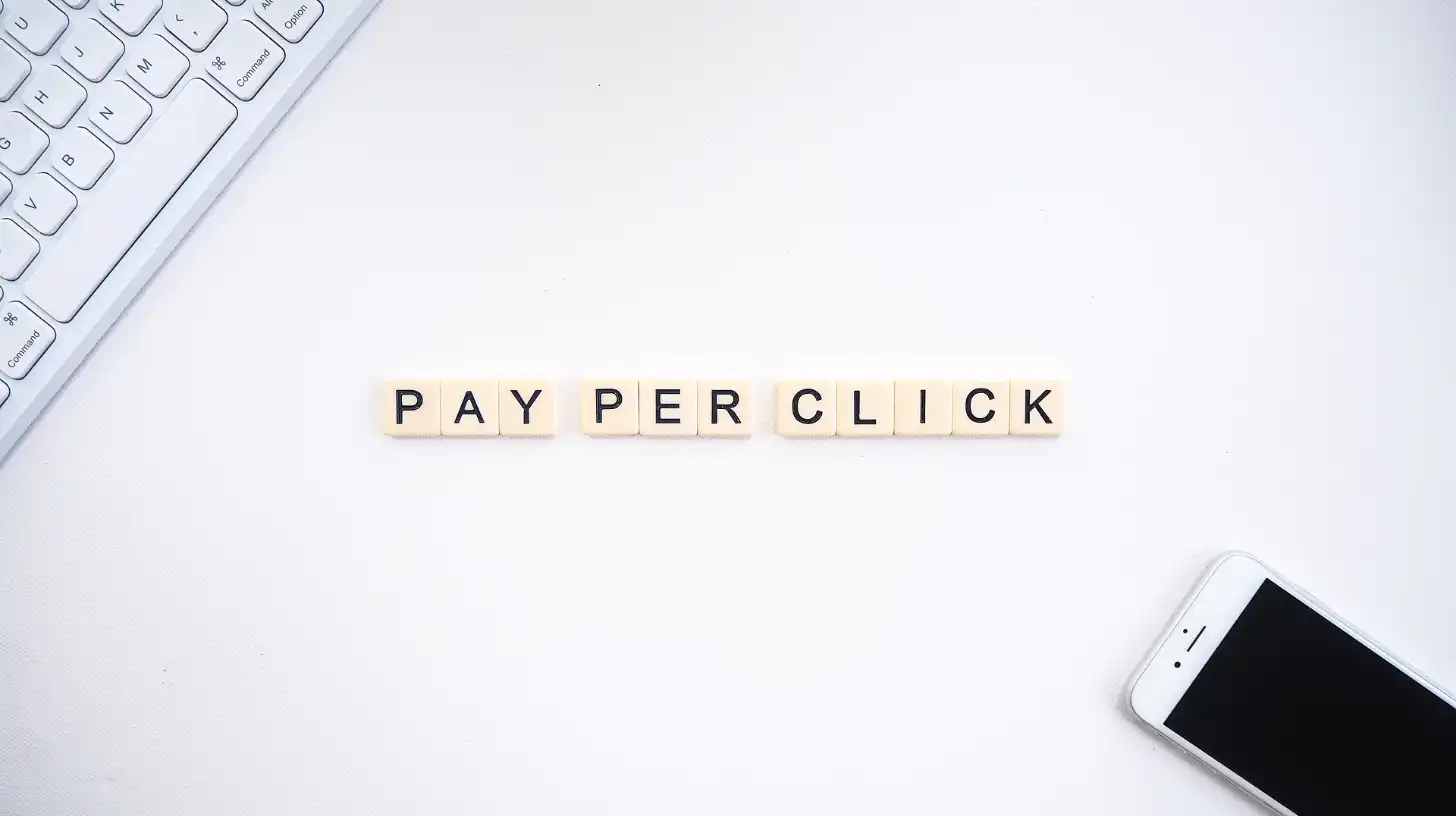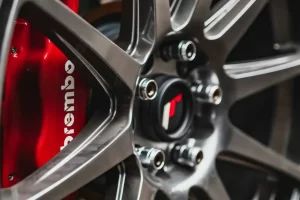Auto detailing businesses are constantly seeking effective ways to reach potential customers and stand out in a competitive market. Two popular digital marketing strategies that often come up in discussion are Pay-Per-Click (PPC) advertising and Search Engine Optimization (SEO). But which one is the right choice for your auto detailing business? In this comprehensive guide, we’ll explore the differences between PPC vs SEO, their benefits and drawbacks, and help you determine which strategy might be the best fit for your unique business needs.
Key Takeaways
- PPC offers immediate visibility but requires ongoing investment
- SEO provides long-term benefits but takes time to show results
- Both strategies can be effective for auto detailing businesses
- The choice between PPC and SEO depends on your business goals, resources and time in the industry
- Combining both strategies can create a powerful digital marketing approach
What is PPC?

Pay-Per-Click (PPC) advertising is a digital marketing model where advertisers pay a fee each time their ad is clicked. It’s a way of buying visits to your website rather than earning those visits organically. Google Ads is one of the most popular PPC platforms, allowing businesses to display ads in search engine results pages (SERPs) and on other websites within the Google Display Network.
How PPC Works for Auto Detailing Businesses
For auto detailing businesses, PPC can be an effective way to target potential customers who are actively searching for detailing services. Here’s a basic overview of how it works:
- You create ads for your auto detailing services
- You choose keywords related to your services (e.g., “professional car detailing near me”)
- Your ads appear when people search for those keywords
- You pay only when someone clicks on your ad
PPC allows you to reach potential customers at the exact moment they’re looking for services like yours, making it a powerful tool for generating leads and increasing bookings.
Pros of PPC for Auto Detailing Businesses
- Immediate Results: Your ads can start driving traffic to your website as soon as your campaign is live.
- Targeted Reach: You can target specific geographic areas, ensuring your ads are seen by potential customers in your service area.
- Measurable ROI: PPC platforms provide detailed analytics, making it easy to track your return on investment.
- Flexible Budget Control: You can set daily or monthly budgets and adjust them as needed.
- Ad Testing: You can quickly test different ad copy and offers to see what resonates best with your audience.
Cons of PPC for Auto Detailing Businesses
- Ongoing Costs: You need to continually invest in PPC to maintain visibility.
- Learning Curve: Effective PPC management requires lots of time and expertise to optimize campaigns.
- Competition: Popular keywords can be expensive, especially in competitive markets.
- Ad Fatigue: People may become desensitized to ads over time, potentially reducing click-through rates.
What is SEO?

Search Engine Optimization (SEO) is the practice of optimizing your website and online content to improve its visibility in organic (non-paid) search engine results. The goal of SEO is to increase the quantity and quality of traffic to your website through organic search engine results.
How SEO Works for Auto Detailing Businesses
For auto detailing businesses, SEO involves optimizing your website and online presence to appear higher in search results when potential customers look for detailing services. This includes:
- Optimizing your website’s structure and content
- Creating valuable, relevant content about auto detailing
- Building high-quality backlinks from reputable websites
- Improving your local SEO to appear in local search results
- Enhancing your website’s user experience and mobile-friendliness
Pros of SEO for Auto Detailing Businesses
- Long-term Benefits: Once you achieve good rankings, you can maintain them with consistent effort.
- Cost-effective: While it requires an initial investment, SEO can provide ongoing traffic without per-click costs.
- Builds Credibility: High organic rankings can increase trust and credibility with potential customers.
- Broader Reach: SEO can help you capture traffic from a wide range of relevant keywords and topics.
- Compounds Over Time: As you create more content and build authority, your SEO efforts can snowball.
Cons of SEO for Auto Detailing Businesses
- Time-consuming: It can take months to see significant results from SEO efforts.
- Ongoing Effort: SEO requires consistent work to maintain and improve rankings.
- Complex: Search engine algorithms are constantly changing, requiring continuous learning and adaptation.
- No Guaranteed Results: Despite your best efforts, there’s no guarantee of achieving top rankings.
PPC vs SEO: A Comparison Table
| Factor | PPC | SEO |
|---|---|---|
| Speed of Results | Immediate | Gradual (3-6 months or more) |
| Cost Structure | Pay per click | Upfront investment, ongoing maintenance |
| Targeting Precision | High (demographic, geographic, etc.) | Limited (primarily keyword-based) |
| Long-term Value | Stops when you stop paying | Continues to provide value over time |
| Trust Factor | Lower (people often skip ads) | Higher (organic results viewed as more credible) |
| Trackability | Highly trackable | Trackable, but less precise |
| Flexibility | Can quickly adjust campaigns | Changes take time to impact results |
| Competition | Can be highly competitive and costly | Competition varies by keyword difficulty |
Choosing the Right Strategy for Your Auto Detailing Business
When deciding between PPC and SEO for your auto detailing business, consider the following factors:
- Budget: If you have the budget for ongoing ad spend, PPC can provide quick results. If you’re working with a limited budget, SEO might be a better long-term investment.
- Time Frame: Need immediate results? PPC is your best bet. If you’re planning for long-term growth, SEO is a solid choice.
- Competition: In highly competitive markets, PPC might be necessary to gain visibility quickly. In less competitive areas, SEO could be more cost-effective.
- Business Goals: Are you looking to promote specific services or offers? PPC allows for targeted campaigns. Want to establish your business as an authority in auto detailing? SEO can help build that reputation over time.
- Target Audience: Consider where your ideal customers are most likely to engage. Some audiences respond better to ads, while others prefer organic search results.
Combining PPC and SEO for Maximum Impact

While it’s useful to understand the differences between PPC and SEO, many successful auto detailing businesses use both strategies in tandem. Here’s how you can combine them effectively:
- Use PPC for Immediate Visibility: While you’re building your SEO foundation, use PPC to drive immediate traffic and leads.
- Inform SEO with PPC Data: Use the keyword and conversion data from your PPC campaigns to inform your SEO strategy.
- Remarket to Website Visitors: Use PPC remarketing to target people who have visited your website through organic search.
- Dominate Search Results: For important keywords, aim to appear in both paid and organic results to maximize visibility.
- Test Content Ideas: Use PPC to test the appeal of content ideas before investing in creating in-depth SEO content.
“The best marketing doesn’t feel like marketing.” – Tom Fishburne
By combining PPC and SEO, you create a comprehensive digital marketing strategy that can drive both immediate and long-term results for your auto detailing business.
Conclusion
Both PPC and SEO have their place in digital marketing for auto detailing businesses. PPC offers quick results and precise targeting but requires ongoing investment. SEO provides long-term benefits and builds credibility but takes time to show results. The best approach often involves using both strategies in a complementary manner.
Consider your business goals, budget, timeline, and target audience when deciding how to allocate your resources between PPC and SEO. Remember that digital marketing is an ongoing process, and it’s important to regularly review and adjust your strategies based on performance data and changing business needs.
By understanding the strengths and limitations of both PPC and SEO, you can create a powerful digital marketing strategy that helps your auto detailing business stand out in a competitive market and attract more customers.
Frequently Asked Questions
How much should an auto detailing business spend on PPC advertising?
The ideal PPC budget varies depending on your business size, goals, and local competition. Start with a small daily budget (e.g., $20-$50 per campaign) and adjust based on performance. Monitor your cost per click (CPC) and conversion rates to ensure you’re getting a positive return on investment.
How long does it take to see results from SEO?
SEO is a long-term strategy, and results typically take 3-6 months to become noticeable (possibly longer if you’re a new business). However, this can vary depending on factors like your website’s current state, competition in your area, and the effort you put into SEO. Consistent effort over time yields the best results.
Can I do PPC and SEO myself, or should I hire a professional?
While it’s possible to learn and implement basic PPC and SEO strategies yourself, hiring a professional can often lead to better results, especially if you’re short on time. Professionals have the expertise to optimize campaigns, stay up-to-date with best practices, and navigate complex aspects of digital marketing.
How do I choose the right keywords for my auto detailing business?
Start by brainstorming terms potential customers might use when searching for your services. Use keyword research tools, for instance Google’s Keyword Planner, to find related terms and assess their search volume and competition. Focus on a mix of broad terms (e.g., “auto detailing”) and specific, local terms (e.g., “mobile car detailing in [your city]”).
Is local SEO different from regular SEO?
Local SEO focuses on optimizing your online presence to appear in local search results. For auto detailing businesses, local SEO is crucial. It involves optimizing your Google Business Profile, getting local citations, and creating location-specific content. While it uses many of the same principles as regular SEO, local SEO has some unique strategies and best practices.
How often should I update my website for SEO purposes?
Regular updates are important for SEO. Aim to add new content or update existing pages at least once a month. This could include blog posts about auto detailing tips, updates to your services page, or new customer testimonials. Consistent, quality updates signal to search engines that your site is active and relevant.
Additional Resources
For more information on digital marketing strategies for auto detailing businesses, check out these resources:
- Google Ads Help Center
- Moz SEO Learning Center
- Search Engine Journal
- International Detailing Association
Photo Credits
- Digital Leverage: https://digitalleverage.ch/







